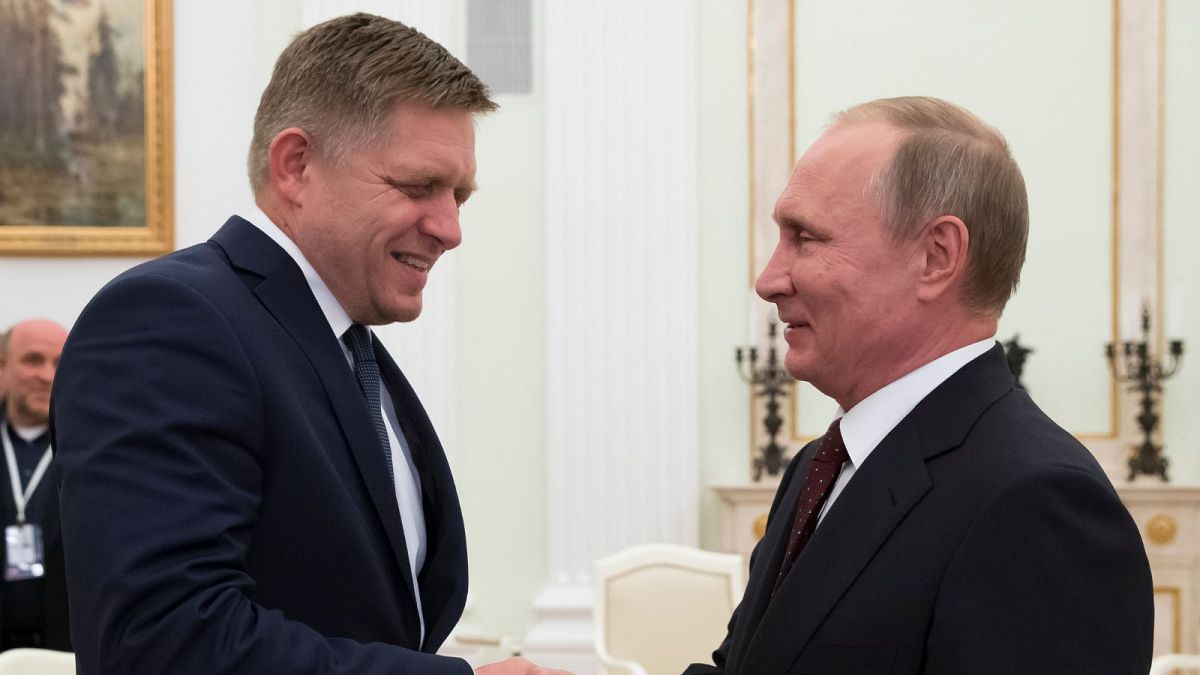Fico is the second EU leader, after Hungarian Prime Minister Viktor Orbán, to meet with Putin since Russia’s full-scale invasion of Ukraine in February 2022.
Russian President Vladimir Putin greeted Slovakia’s prime minister, Robert Fico for talks in the Kremlin on Sunday.
The rare visit marks only the second time an EU leader has met with Putin since Russia’s all-out invasion of Ukraine in February 2022.
It comes after Hungarian Prime Minister, Viktor Orbán, visited the Russian leader in Moscow earlier this year.
Kremlin spokesman Dmitry Peskov said Fico arrived in Russia on a “working visit” and met with Putin one-on-one on Sunday evening.
He did not immediately specify the focus of the talks.
It follows the recent escalation of a long-running despite between Fico and Ukrainian President, Volodymyr Zelenskyy, over Zelenskyy’s decision to completely stop the transit of Russian gas through Ukrainian territory after the end of 2024.
Slovakia, a landlocked country, remains highly dependent on Russian gas, which it gets from Gazprom, the state-owned monopoly, through a pipeline throughout Ukraine.
“If anyone is going to prevent the transit of gas to the territory of the Slovak Republic, if anyone is going to cause an increase in gas prices on the territory of Europe, if anyone is going to cause enormous economic damage to the European Union, it is President Zelenskyy,” Robert Fico said in a press conference at the end of a one-day summit of EU leaders in Brussels.
“He has a right to be nervous. I would not want to be in his shoes because the country is struggling,” he added, insisting Slovakia would never allow Ukraine to join NATO.
Visits and phone calls from European leaders to Putin have been rare since Moscow sent troops into Ukraine.
Orbán’s July visit drew widespread condemnation from both Kyiv and European leaders, and the Hungarian prime minister is widely seen as having the warmest relations with Putin among EU leaders.
He has routinely blocked, delayed or watered down EU efforts to assist Kyiv and impose sanctions on Moscow for its actions in Ukraine.
Read the full article here


